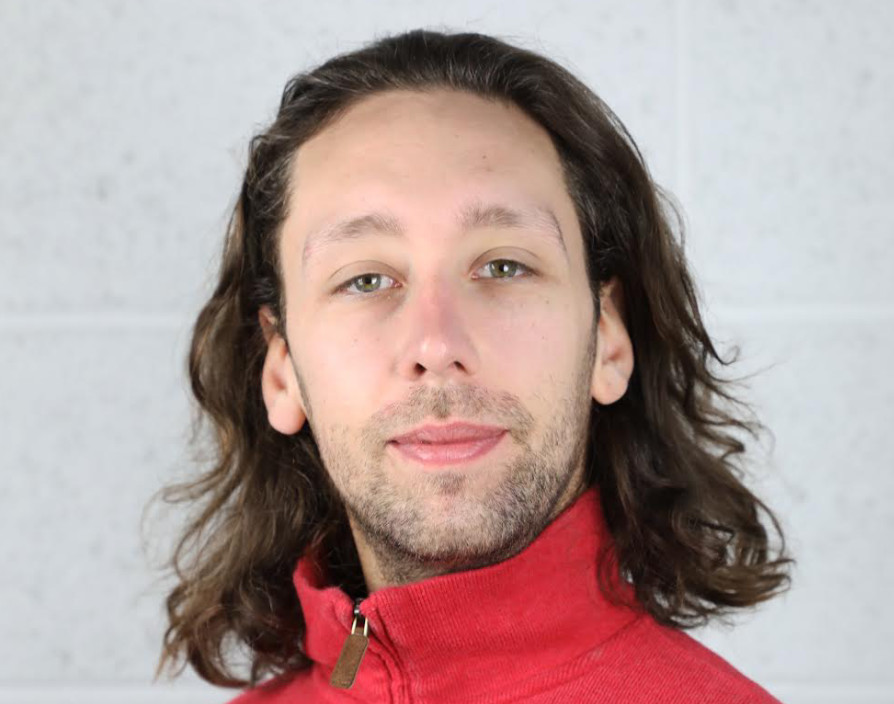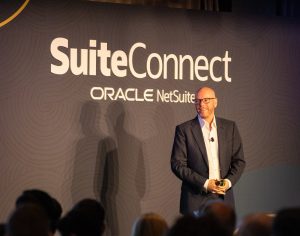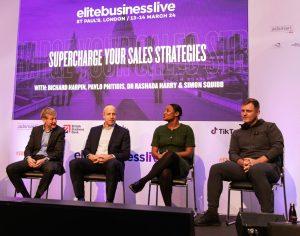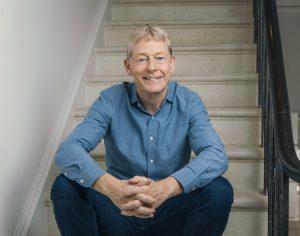David Weaver, co-founder of Vintage Cash Cow, the UK’s first online platform that allows people to sell vintage items for cash speaks about his entrepreneurial mindset behind launching UK’s first online platform for selling vintage items for cash
The job that ultimately put me on the path of marketing first began in a kebab shop at 5 am, David tells me, proving how his entrepreneurial spirit was cultivated from a young age. David grew up in Cambridge with both mum and dad as the eldest of four children, witnessing his parents’ hard work and determination to put food on the table which encouraged him to always try his hardest at any task. David scored well in school but ended up flunking his GCSE’s, which he said felt like a misery at the time. David decided not to go down the university route and began working full time on the phones in finance claims management and consumer finance.
David dived into the world of marketing, and his first step down that path came to him in a very unexpected encounter. David was at a kebab shop after a night out when he chanced upon Jamie, a manager from Oasis Financial Services, a call centre his friends worked at. And it was just one thing standing in his way from landing an interview for a marketing role ‘ a £4.50 kebab. David treated Jamie to a ravishing meat-filled wrap and was promised an interview at the company the next morning.
The job that ultimately put me on the path of marketing first began in a kebab shop at 5 am, after a night out with some friends, when their manager from the call centre they worked at came in, David explained. I was introduced to Jamie and he hit me with a proposal as soon as he finished his hello, he told me: ‘If you buy me a kebab you can have an interview tomorrow’.
£4.50, a few hours’ sleep and one hell of a hangover later, I went in to see Jamie. I pretended I knew what he was talking about, specifically outbound cold calls asking people if they’ve got an endowment mortgage to see if we can help them claim for mis-selling, and I started the next day.

David was coached under Jamie’s guidance, who showed him the ropes during his two years at Oasis Financial Services. He was then offered to take up a new marketing role in the company and eventually fell into the position as head of marketing for the firm. David was able to put his marketing knowledge to good use, growing the company’s branding and marketing strategy over the next four years and at its peak, was responsible for more than £200,000 budget to take the firm to new heights.
He eventually left the firm and moved to London to work with a former affiliate. In 2015, David met antique dealer, Antony Charman, who required his help in building a website. Little did the pair know they would have founded the highly successful start-up, Vintage Cash Cow, just a few months later. Antony realised there was a gap in the market for recycling and upcycling old, unused items ‘ and he needed David to help him build their online platform. Soon later, the pair joined forces within their areas of expertise – and Vintage Cash Cow was born. Launching in February 2016, Vintage Cash Cow is now a free service that allows people to sell their vintage items for cash, upholding its efforts in recycling, upcycling and rehoming unused products. Since its launch, the company has helped people generate extra income while decluttering their home, buying over 58,000 boxes of old, recyclable vintage items. The Leeds-based start-up is backed by Dutch investors including Laurens Groenendijk, founder of JustEat and Treatwell, Bas Beerens of WeTransfer and Daan Donders of So Connect. Vintage Cash Cow has also teamed up with charity shops to allow them to trade their unsold and non-saleable donations. The company now predicts a turnover of around £15-20 million in 2021, with further plans to expand its efforts into the US market.
Antique trader Antony Charman got the idea from his kids who said he needed a site, David explained. They’d been talking to him about Music Magpie, where people post CDs, DVDs and games, and thought he could make something similar for antiques and collectables. They were right. People were becoming more desensitised to mail, with most of them returning online orders in the post. An increasingly large percentage of seniors in the country were going online and getting smartphones. It was just all the right timing.
Antony got quotes for £3,000, £20,000 and £100,000 for the site, to then realise he didn’t know what he was looking for exactly. When we met, I talked him through the need for a CRM system and explained how his customers would start of as an enquiry and take various steps through to sale, and then repeat, hopefully. We decided on a deal where I project managed the development of the CRM system, all processes and the website. This was a one-off fee deal, with no partnership agreed, but four months later when things were nearly finished, we met again in Leeds and struck up a deal for me to do two days a week in return for equity and a retainer.
However, the early days of starting their company were no easy feat. Launching and upscaling a business venture comes with several obstacles and struggles along the way, and Vintage Cash Cow was no exception. David and Antony struggled with advertising the website and the costs of acquiring new customers. Getting the website and Facebook ads were the biggest struggle, David explained. The cost per customer was far higher than we could afford, which held back our growth. The operation was forever becoming more efficient, it was just the marketing and user journey that kept me up at night. We tried a range of consultants from freelance sites. Each one seemed to know more than the last, but none took us to the next level. In the first nine months from Feb 2016, we’d spent £100K on Facebook ads and started Paid Search. While we clearly had an exciting business, we knew we couldn’t grow without help, and more cash.
The coronavirus pandemic brought along an even larger roadblock for the dynamic duo. They ended up furloughing 25 out of their 32 staff during the first lockdown as they faced an onset of challenges to keep their business model afloat. As the pandemic kicked in, that plan went out the window. Fewer people were clicking on our ads, then within two weeks, the boxes really slowed down and stopped coming in, David explained. We bought 1,800 boxes in March, then went down to 500-600 in April. When charity shops closed, that was 350 boxes we were receiving monthly gone. Coronavirus impacts the older people a lot more than younger, and that’s the audience we’re targeting. Fear’s no good for marketers unless your product or service cures it. Making extra cash wasn’t at the top of many people’s agenda as we thought it would be at first, and like the rest of the country, we had no way of predicting when things would change.
However, David saw this as an opportunity give the company enough time and breathing space to focus on improving their product and marketing strategy. With their new model, Vintage Cash Cow has reaped success, growing its customer base by 13% in the past quarter alone, with an annual turnover of £4.5 million. We shifted our message to show our customers things they can instantly relate to, stories they can imagine themselves in, like a picture of someone out treating their friend to dinner with that extra money. After we saw what results this brought in, we looked at applying this concept to our other channels as well, including the website.
We simplified the website’s sign-up form, and clarified what people were actually registering for – a physical pack that we send in the post. We also changed the site’s main call to action from ‘Order Free Guide’ to ‘Order Free Selling Pack’. After people sign up, we send a sequence of emails over the next six weeks, while they find time to hunt around the home and pack up their box; all of these were upgraded with better messaging and more useful tips. These changes have resulted in us now converting on average 30% of each week’s new website sign-ups into a purchased box within six weeks ‘ a staggering improvement from 20% in around 10 weeks. This performance enables us to be far more aggressive on paid media channels, it’s got our business month-on-month profitable, we had our first year of ending on a profit and we can now invest in bigger and longer-term SEO, PR and brand strengthening strategies.
David takes pride in his growth-oriented mindset and focuses on learning as much as possible, living with his daily mantra ‘pain plus reflection equals progress’. I expect to fail a lot; I just make it quick and learn from it, David said. “I focus on learning as much as possible with the least amount of effort when it comes to everything from a new landing page test, to an automated email sequence. The book Running Lean by Ash Maurya instilled this in me. It was a book I read right before quitting my job in London to go at it alone. I also live with a guiding principle of pain plus reflection equals progress, as Ray Dalio puts it in his book Principles. Seeking discomfort and tackling the uncomfortable conversations you need to have with teams and individuals helps you grow as a person. It’s never as bad as what you thought it’d be, and you always learn something from the process.
In a few words of advice to SMEs who are struggling during the pandemic, David said: Just accept that this is tough right now and focus on what you can actually change. It may continue to get worse too, so your company needs you to be at your best, not snoozing your alarm and not facing the music. These are the times that define you. Do the work the company needs you to do, not the work you want to do. Focus on the simple but hard work, the things you know you can do, but requires the most brainpower and energy. Calling 100 potential partners in a week isn’t necessarily hard, but it takes a lot to ‘get up’ for doing it.
It’s too easy to keep checking reports and refreshing your inbox throughout the day and hoping for change, but that’s just anxiety work, he added. Avoid the complex and hard work too, where it may drag on for weeks and months and many things could go wrong. The projects with a long list of new moving parts that are also things you’ve not done before. These aren’t the things to focus with so much uncertainty around, as it could all be for nothing in the next 6 pm update from Boris and the gang. Empower your team and let go. I’ve benefited from giving my team clearer goals, more freedom with budgets, and more transparency on the company’s finances. Your budget, your call gives them the confidence of you trusting their ability. It also frees you up to work on the things that need you, that no one else can do.
“
Share via:


















































